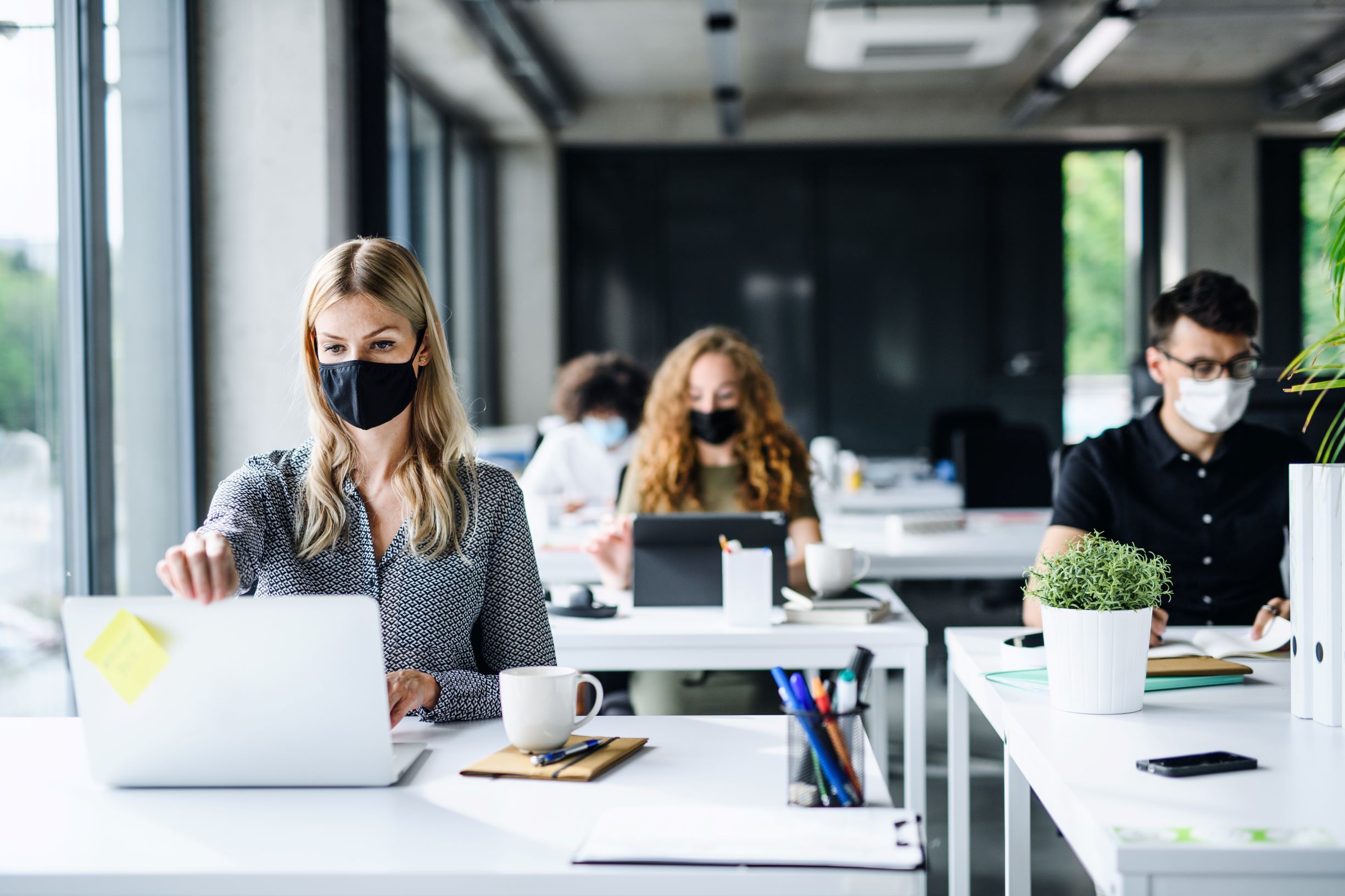When the pandemic spread across the globe, businesses had to transform their way of working. Some had to reconfigure their workspaces, introduce social distancing or set up hygiene stations, whereas others changed to shift patterns or remote working.
Such drastic changes and the introduction of a novel hazard to the health of workforces meant that new assessments of risk were necessary. But research suggests that this wasn’t necessarily the case.
COVID-19 risk assessments
In our survey of businesses after the first national lockdown in 2020, we investigated what businesses did to keep their staff safe. While many introduced PPE, two-metre distancing and remote working, there was a noticeably lower percentage who reported carrying out additional risk assessments and training.
Indeed, we found that just 10.6% of respondents provided additional training on handwashing, social distancing and the symptoms of COVID-19.
And in terms of risk assessments, just 28.1% reported that new risk assessments were carried out before they went back to work.
Similar findings were announced by the TUC when they published their report in September 2020. In their research, they found that just 38% of workers said that they knew their employers had carried out a COVID-secure risk assessment.
Legal obligations
Risk assessments are first and foremost a legal requirement. According to the Management of Health and Safety At WorkRegulations (1999), a business must at the very least:
- Identify what could cause injury or illness
- Determine how likely it is that someone could be harmed
- Establish the severity of the risk
- Take action to remove the risk or hazard
As a minimum, risk assessments should be carried out once a year. However, in reality they should be carried out every time there is a significant change to your workplace, whether this be the layout, the equipment or substances used or your business processes. New hazards need to be incorporated and training on these needs to be provided.
Why are risk assessments important?
Risk assessments are a legal requirement because they help a business to maintain a safe workplace and reduce the risk of illness or injury.
According to the HSE there was a record low of work-related deaths in the UK during the year 2019/20. Nevertheless, there were still 0.7 million workers who sustained injuries while at work. Andover this year the number of those with work-related ill health rose slightly to 1.6 million.
Some of these illnesses and injuries can be easily prevented with safer practices at work. It is telling that the reason behind the majority of work-related injuries was slips, trips and falls (29%), incidents that should be easy to prevent. It is also notable that manual handling was still responsible for 19% of injuries, something that adequate training can help to reduce.
What should you include in a risk assessment?
 To establish the risks and hazards of your business, you can think about:
To establish the risks and hazards of your business, you can think about:
- How people work
- What equipment is used
- What chemicals and other substances are used on site
- The upkeep and layout of your premises
- Your latest accident and ill-health records
Once you have identified the potential risks, you need to take action to control or mitigate them.
This could include:
- Redesigning the job
- Organising work to minimise exposure to chemicals or machinery
- Replacing chemicals, substances or machinery
- Implementing regular training
- ProvidingPPE
Health & safety training
Offering up-to-date training to mitigate health & safety risks within your business is a key way of reducing the potential harm of hazards. Training on fire safety awareness, manual handling and display screen equipment are just some examples of essential training that need to be refreshed annually to keep risks to a minimum.
When situations such as COVID-19 emerge, additional training may also have to be given quickly to reduce the harm of emerging hazards.
If you want to stay on top of your team’s training, you may want to take a look at QMS eLearning. It offers more than 140 CPDcertified and RoSPA approved courses, including modules on handwashing, social distancing and COVID-19 symptoms, which can be taken at any time and on any device.

